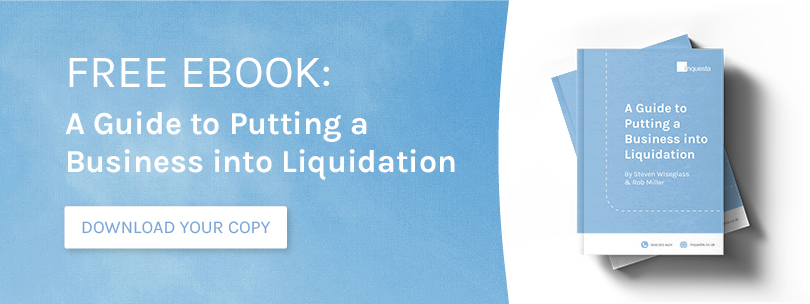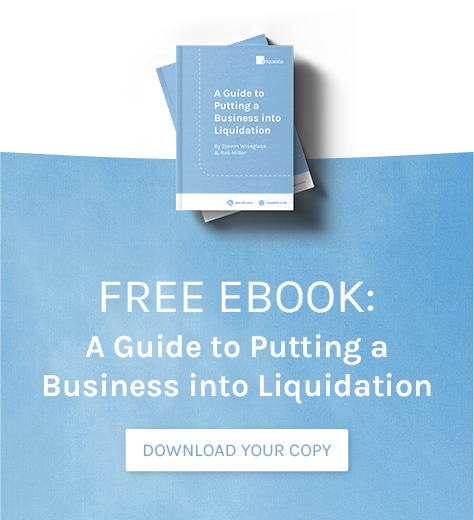The recent resumption of winding up petitions following the COVID-19 pandemic has left many businesses scrambling to shore up their finances. Unfortunately, some will find that they are unable to pay what they owe — with one of the main creditors being the tax office. But can you negotiate with HMRC, or are you completely out of options if you find yourself unable to keep up with payments?
If you are finding yourself in financial distress and unable to pay your tax liabilities, it is important to seek independent, specialist advice at your earliest opportunity to give yourself the best possible chance of turning around your fortunes. Should your company also be struggling to cope with life after furlough, we have put together a free downloadable guide to help.
Do HMRC Negotiate?
It is possible for a company struggling with debt repayment to negotiate with HMRC. However, the process was much simpler historically. Due to added pressures put upon them by the Treasury, HMRC are now forced to take a harder line when it comes to business arrears, meaning that it is vital that you understand exactly what they are looking for.
Making regular payments to HMRC each and every year is an accepted part of running a business. For some, these payments can be difficult to keep up with, and falling behind can be an unfortunate reality.
With HMRC taking a harder line with any and all parties who owe tax, the art of negotiation has never been more important.
HMRC is still willing to listen to a struggling business and potentially negotiate more manageable terms if the situation requires. However, it is important to take a more active role in the process.
If you are unsure about negotiating with HMRC, it is a good idea to seek independent advice from an expert before entering into the process.
Why Negotiating Settlements with HMRC is Important
Failure to keep up with and repay tax debts to HMRC on time can result in serious consequences . These range from fines, to the possible liquidation of your business. When you have built a company from the ground up, you do not want to risk losing everything because you haven’t negotiated appropriately with HMRC.
Potentially the most serious consequence of failing to negotiate a settlement with HMRC is the threat of a winding up petition being issued against your company. The consequences of a winding up petition include:
- The freezing of all company bank accounts
- Rising legal costs
- Reputational damage among distributors and consumers
- The eventual liquidation of the business
To find out more about the consequences of a winding up petition, check out our blog on the subject.
A Guide to Negotiating with HMRC
When negotiating with HMRC, there are a number of factors to remember that will exponentially increase your chance of success. Devise a clear and concise plan before entering into negotiations, ensure that you are not tardy with your communications, and contact an independent advisor to help secure your long-term financial future.

Are You Communicating Effectively?
In the event of non-payment, it is customary for HMRC to issue letters to remind the offending party of their requirement to repay. Should you receive such correspondence and find yourself unable to comply, it is important to act quickly.
Failure to do so will likely have a huge knock-on effect on any future negotiations for repayment plans. Not responding, or doing so slowly will be seen as a sign of a lack of intent, and likely untrustworthiness. It could also result in penalties, fines, and interest added.
There are multiple lines of communication that you can choose to take to discuss your case, such as via:
- Letter
- Business Support Line
It is important that you are as upfront and honest in your correspondence as possible. Hiding the realities of your situation, or stretching the truth can only lead to your request being declined down the road. Be clear on your current financial situation, propose terms that would better suit you and allow you to genuinely adhere to repayment. If this is the first time you have found yourself in this position, it is possible that HMRC could opt to assist you.
Is Your Plan Clear?
Before you reach out, if you want to increase your chances of success it is important to devise a clear and concise plan.
A few things that you should take into account, and have to hand before you contact HMRC are as follows:
- Make sure you can accurately recount your current outstanding debt
- Make note of any reasoning and justification for your inability to pay
- Provide evidence that you are attempting to address your current situation
- Have statistics to hand regarding company finances
- Know your VAT/taxpayer reference number
When it comes to negotiating with HMRC over your tax arrears, If you can’t show that you understand the intricacies of the situation you are in; how you got here, and what can be done to get you out, then HMRC may not feel that you can be trusted with their help.
Do You Need Expert Assistance?
Depending on your situation, it could be prudent for you to consider contacting an independent expert. A professional would have experience assisting with similar situations, and the expertise required to guide you towards a successful conclusion.
A qualified advisor will be able to provide a buffer between you and the tax office, allowing you to better continue your day-to-day business, as well as ensure that your negotiations go as well as possible with their guidance, they can even enter into negotiation on your behalf.
There are multiple repayment options open to a business; from Pay As You Earn to Time to Pay, an expert will be able to assess your case and steer you in the direction of the best solution for you.
Negotiating Time to Pay with HMRC
Should you find yourself unable to pay your taxes on time, HMRC may see fit to offer a Time to Pay arrangement. This agreement between a business and HMRC affords additional time to repay debts — usually across a 12 month period. This will afford the business additional breathing room against the pressure that can build under financial difficulties.

In order to qualify for continued assistance under Time to Pay you must:
- Be clear and honest about your financial situation — discovery of any attempts at deception during or after negotiations will result in cancellation of the agreement, and could result in liquidation.
- Only be temporarily unable to pay off their outstanding liabilities.
- Not spend frivolously on anything beyond repaying your tax bill.
- Make attempts to begin the process as soon as possible. It is possible for an agreement to be made in the event of arrears. However, HMRC would prefer the business to be transparent and pave its own way without being asked.
Failure to adhere to an agreed upon Time to Pay arrangement can lead to strict penalties. It is common, in the event of failure to pay under the arrangement, for HMRC to attempt to force the immediate closure of the company in an attempt to recoup debts. To avoid this it is important that you take all necessary steps to make the agreed payments.
It may be prudent to contact a financial expert to assist you in the repayment process and ensure that you do not breach your agreement, placing yourself in further hot water that could threaten your business.
How Inquesta Helps with HMRC Pay Negotiations
Inquesta has amassed decades of experience providing detailed, expert tax debt solutions for companies across the business world. The experience of our team also extends to a history of dealings with HMRC, that ensures that we can help get you the best possible result.
We understand how complicated HMRC arrears can be, the future of your business can be on a knife edge. This is why we promise to conduct a thorough, detailed investigation into your circumstances upon appointment to gain a clear insight into your situation. This allows us to best advise you on the ideal option for your business, or to negotiate with HMRC directly on your behalf.
We pride ourselves on always keeping the best interests of our clients at the forefront of every single thing we do. Our clients are kept in the loop throughout as we reach a recommendation of what we consider the best choice for your situation. Ultimately though, no matter what decision you choose, we will work tirelessly to guarantee the best solution possible.
For more information about what Inquesta can do to help you, contact a member of our team today or request a no-obligation consultation.



